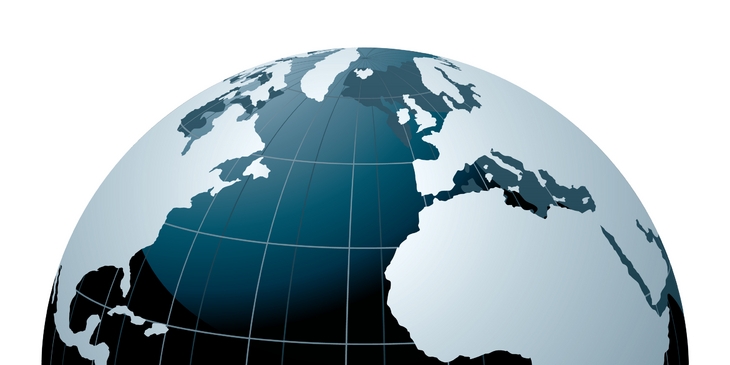
Globalisation: Business versus politics?
Globalisation: business versus politics?
by Katinka Barysch
The CER and Accenture brought together a group of business people, journalists and policy analysts today, to discuss what the world may look like in 2020. What struck me is that there is not one debate about globalisation but several. And they hardly touch.
Business people and bankers tend to take globalisation as a given and ask how governments, businesses and workers can make the most of it. Journalists, think-tankers and politicians are more likely to ask whether globalisation is good or bad. The assumption is that it can be managed.
Two recent publications encapsulate these different approaches. Both extrapolate current trends and naturally conclude that China, India, Brazil, Russia and other emerging markets will be big global players in 2020. Mark Leonard (in his CER essay ‘Divided world: The struggle for supremacy’) then argues that the world will divide along two axis: democracy versus autocracy; and multilateral institutions versus power. Instability could result if the world’s leading states struggle to entice others into their camp.
Accenture’s report on ‘The rise of the multi-polar world’ takes a bottom-up approach. Technology, trade liberalisation and the growing reach of multinational enterprises draw emerging countries into our rules-based global market. This is a world characterised by growing flows of money, people and technology. Multinationals lure Indian programmers to Munich and Palo Alto; new R&D clusters are emerging in China; foreign direct investment last year exceeded $1 trillion.
Both visions are plausible. But are they compatible? Political differences – such as those predicted by Mark Leonard’s – have a tendency to disrupt the kind of economic interdependence that Accenture analyses.
In the scenario of a ‘divided world’, trade and investment could be tools for defending political objectives, and perhaps for spreading ideas. But countries will be less likely to employ economic sanctions to enforce their standards and values abroad. In a globalised world, cutting trade and investment ties simply creates opportunities for others. In its quest for raw materials, China has invested huge sums in African dictatorships shunned by the West. Many African countries now get as much FDI from emerging economies as from the developed world.
In Accenture’s visions, business itself could help to spread practices and underlying values. As Western multinationals move abroad, they bring with them not only money and management but also Western ideas on property rights, social protection and so on. But the flow is no longer one way. Today, 62 of the Fortune 500 companies are from the developing world, and the number is growing fast. Cross-border acquisitions help these companies to enter markets, acquire well-known brands and learn modern management. But the reversal of investment flows makes many Westerners uncomfortable. The debates about Dubai Ports, Aeroflot’s bid for Allitalia or Tata’s acquisition of Corus spring to mind. Russia now insists that European companies can only invest in its oil and gas sector if Gazprom is allowed to buy European downstream assets. Will such demands for ‘reciprocity’ spread? And if so, would the ‘new’ multinationals conform with our local rules or import their own ideas about how to do business or treat workers?
Market forces shape the globalised world, but so do governments. Autocratic countries find it easier to act strategically than democratic ones. If China was a democracy, its voters may well be upset about the costs (as well as the legitimacy) of the government’s Africa policy. Moreover, in democracies the losers from globalisation are making their voices heard. Low-skilled workers who watch imports and immigration erode their wages will vote for politicians promising relief. Protectionism and global leadership do not go together.
These are fascinating questions. There certainly is a need for business and politics to discuss their respective views of globalisation more often.
Katinka Barysch is chief economist at the Centre for European Reform
